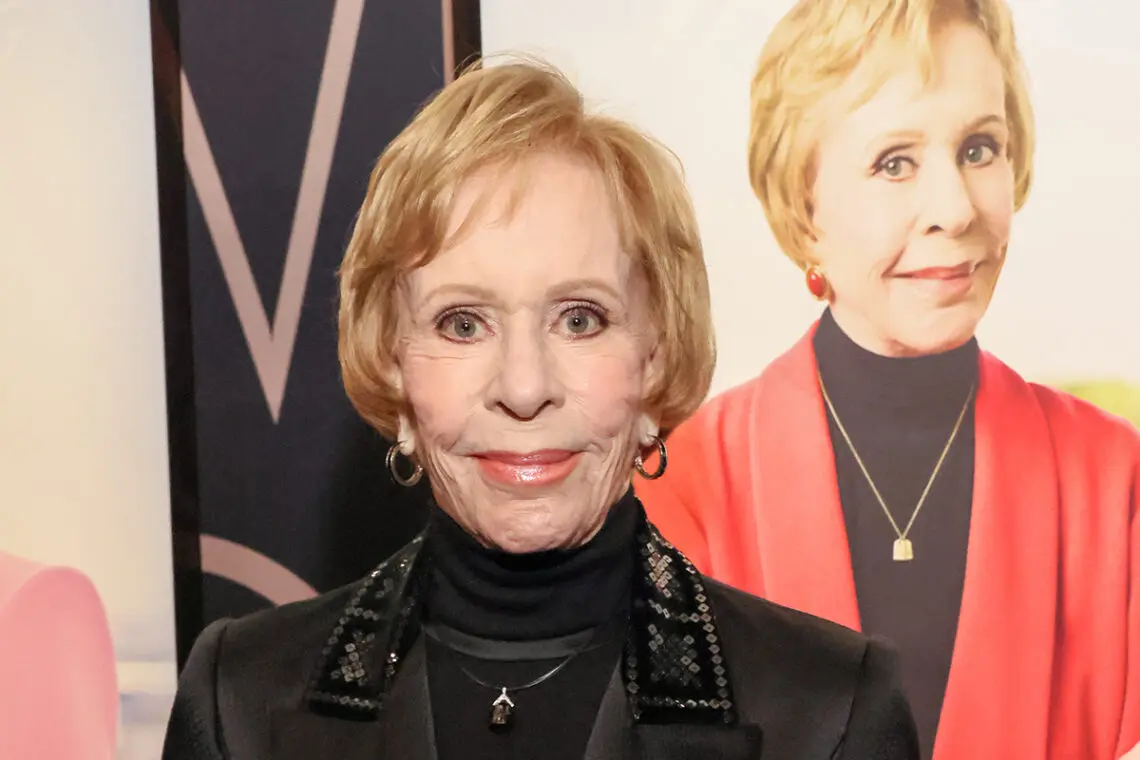Carol Burnett praises Dr. Nancy Wexler’s unwavering dedication to Huntington’s research
Carol Burnett took the stage at a prestigious event to celebrate the achievements of influential women. However, her real intent was to share the limelight with a true hero in the medical field, Dr. Nancy Wexler.
Honoring A Medical Pioneer
Burnett couldn’t hold back her admiration for Wexler. “She is the true recipient of this honor,” she passionately declared during her speech. Dr. Nancy Wexler has devoted a lifetime to Huntington’s disease research, a journey that began with her father, Milton Wexler, who laid the first stone by founding the Hereditary Disease Foundation in 1968. This was in response to his wife Leonore’s diagnosis with Huntington’s, which also put their daughters, Nancy and Alice, at risk.
Groundbreaking Research in Venezuela
Dr. Wexler’s relentless pursuit of answers took her team to the far reaches of Venezuela. For years, they meticulously gathered data from remote regions, striving to learn more about this devastating neurological disorder. Burnett shared, “She was tireless in her search for the gene that causes Huntington’s.”
In an astonishing breakthrough in 1983, thanks to Wexler’s in-depth clinical data, the foundation identified the Huntington’s disease gene. This discovery was nothing short of a medical miracle. The identification of this gene led to the development of a genetic test for Huntington’s, laying a solid foundation for subsequent research into the disease.
A Ripple Effect on Neurological Research
The impact of Wexler’s work doesn’t end with Huntington’s disease. According to Burnett, this pioneering research has far-reaching implications. It advances studies on other severe neurological conditions like ALS, Parkinson’s, and Alzheimer’s. The tireless efforts of Dr. Wexler and her team have broadened the horizon for understanding and potentially curing these ailments.
Burnett, a steadfast supporter and board member of the foundation for over two decades, emphasized the massive significance of Wexler’s discovery. “Nancy found the gene, and because of that, someday they will find the cure.”
A Night of Celebrations and Memories
The event itself was a star-studded affair. Before Burnett took the stage, she was introduced by a fellow comedian and actress. The Ford star, known for her standout roles in television and film, has a track record of celebrating achievements in entertainment. In 2013, she had the honor of receiving the Mark Twain Prize, and later, in 2016, she was awarded a Life Achievement Award.
Empowering Women and Advancing Medical Research
The evening was not just about acknowledging past achievements but also about inspiring future endeavors. Burnett’s decision to highlight Dr. Wexler’s contribution at a women’s empowerment event emphasizes the crucial role women play in scientific advancements. Her speech served as a poignant reminder that recognition and support can propel groundbreaking research forward.
Behind the Science: The Technical Impact
Dr. Wexler’s work isn’t just celebrated for its clinical outcomes—its technical ramifications are immense. The identification of the Huntington’s disease gene marked a seismic shift in genetic research. It spurred advancements in genome sequencing and genetic engineering, paving the way for contemporary technologies like CRISPR, which aims to edit genes directly.
Moreover, the genetic testing protocols developed from her research are now standard procedures for predicting and diagnosing hereditary diseases. These tests have become crucial tools in preventive medicine, allowing individuals to understand their genetic risks better and make informed healthcare decisions.
The Role of Genetic Counseling
Another significant outcome of Wexler’s accomplishments is the evolution of genetic counseling. With the ability to test for Huntington’s, trained genetic counselors can guide families through the complexities of the diagnosis, predict potential health risks, and provide psychological support. This holistic approach ensures that patients and their families are not only informed but also emotionally and psychologically prepared for the implications of genetic findings.
The Future of Huntington’s Research
As we look to the future, the foundation laid by Dr. Wexler continues to inspire and drive forward technologies like stem cell research and neuroprotective therapies. The goal is no longer just to identify and manage symptoms but to find a curative treatment or even preventive measures that could stop diseases like Huntington’s in their tracks.
Continuing the Legacy
Carol Burnett’s tribute to Dr. Nancy Wexler at the event was more than just an acknowledgment; it was a powerful statement about the enduring impact of Wexler’s work. As we continue to support and recognize such monumental efforts, we pave the way for a future where the dream of curing devastating diseases becomes a reality.
Sharing this inspiring story is essential. Follow our site for more updates on impactful scientific research and heartwarming stories of human perseverance.
For more details on groundbreaking movies, visit this link.
Stay connected to ensure you don’t miss out on incredible stories and updates in the world of science and beyond.

 Italian
Italian







